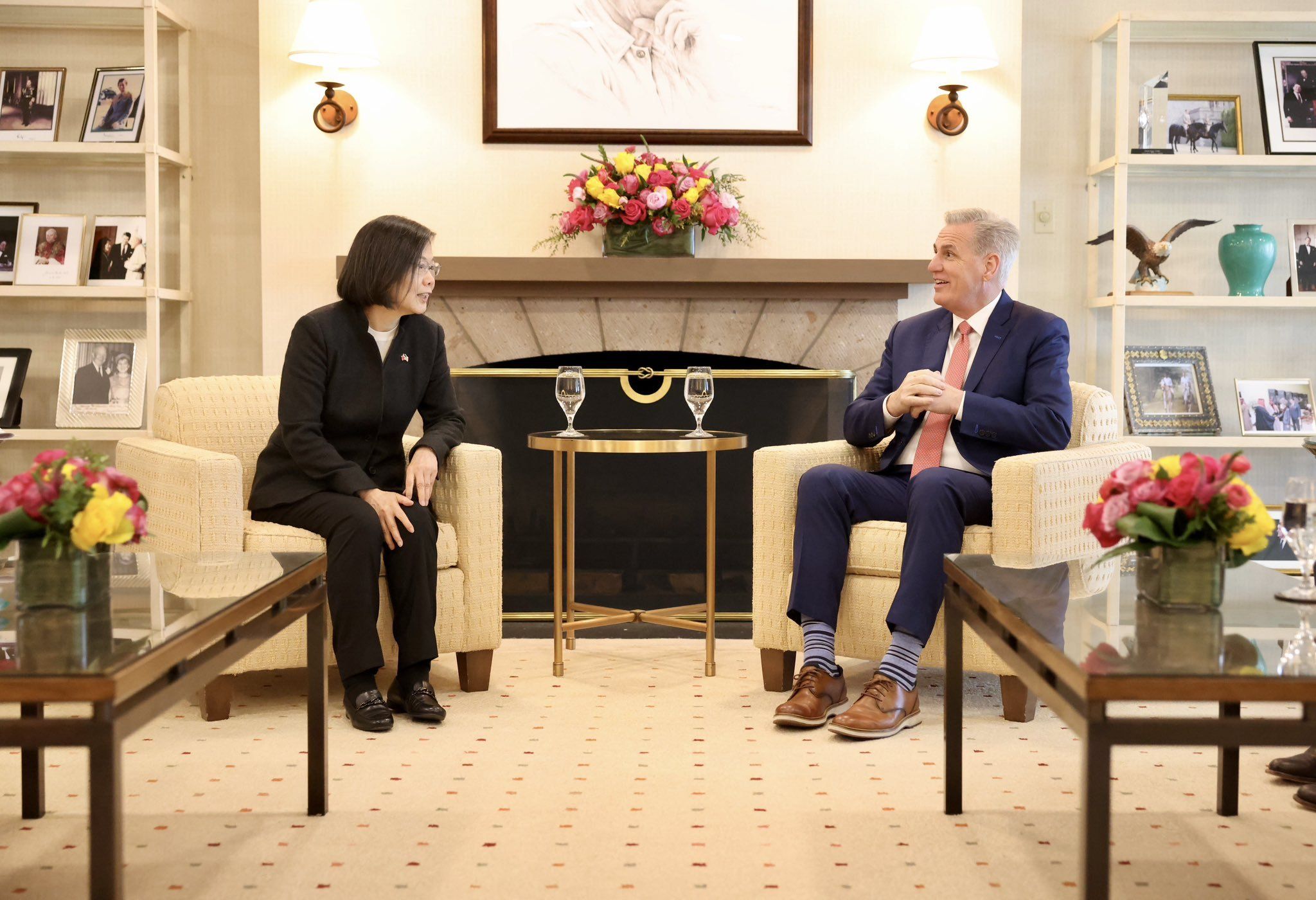What We're Watching: Tsai in California, Lukashenko in Moscow, no Easter in Nicaragua
After US speaker meets Taiwan's prez, all eyes on China
US House Speaker Kevin McCarthy on Wednesday met Taiwan's President Tsai Ing-wen in California, the last stop of her trip to the Americas. McCarthy is the most senior US official to meet a Taiwanese leader on American soil since 1979, when Washington officially recognized Beijing – rather than Taipei – as “China.”
The meeting was a bold move by the Taiwanese leader, given that China considers Taiwan part of its territory and is triggered by even the slightest hint of Americans normalizing ties with Taipei. And it definitely won’t help improve the US-China relationship. But so far, Beijing’s response has been more meow than growl.
Ahead of the tête-à-tête in California, China sent fighter jets and naval vessels near the Taiwan Strait, which separates Taiwan from the Chinese mainland. Beijing followed that up by dispatching an aircraft carries and announcing spot inspections of Taiwanese ships.
Still, it wasn’t quite the massive show of force put on by China right after Nancy Pelosi's visit to Taiwan last August. Blame bad timing: Xi Jinping likely doesn’t want to freak out French President Emmanuel Macron and European Commission chief Ursula von der Leyen, who Xi is hosting this week at a very awkward time for China-EU relations.
Lukashenko’s delicate dance
Belarusian President Alexander Lukashenko went to Moscow on Wednesday to pay a visit to his ally (?), friend (?), overlord (?), and partner Vladimir Putin. Whenever these two meet, Lukashenko must tread carefully. Since December 1999, Russia and Belarus have been part of a “Union State” meant to deepen economic and defense cooperation between the two former Soviet countries.
But now Putin, frustrated by a war gone wrong, is nudging Lukashenko toward further integration steps that appear to expand Russian power. Lukashenko has good reason to fear that full “integration” would allow giant Russia to swallow little Belarus whole. But he also can’t resist too aggressively, because he has faced pro-democracy protests at home that might have brought down his regime had Putin not come to his rescue.
For this reason, Lukashenko must continue a delicate dance. He allows Russia to use his country as a staging ground for war on Ukraine, and as a location for the Kremlin’s tactical nuclear weapons too, but he still resists Putin’s pressure to send Belarusian troops to join the fight.
Nicaraguan strongman cancels Easter
The Nicaraguan government is banning Holy Week street celebrations as it cracks down on critics amid a spat with the influential Catholic church.
Tensions have simmered between the church and strongman President Daniel Ortega since the anti-government protests of 2018, when his government accused clerics — who were seeking to mediate between the two sides — of supporting the streets. And amid a sweeping crackdown on dissent, Bishop Ronaldo Alvarez, a prominent Ortega critic, was sentenced in February to a 26-year prison sentence for treason, inflaming tensions in the fiercely Catholic country.
Last month, the government suspended ties with the Holy See altogether after Pope Francis called the government of Ortega – a former Marxist guerilla who somewhat unconvincingly reinvented himself as a man of faith 15 years ago – a ‘crude dictatorship’ and compared its repression of Catholics to Nazi Germany.
As Easter Sunday approaches in Nicaragua, it’s fair to ask: WWJD?
